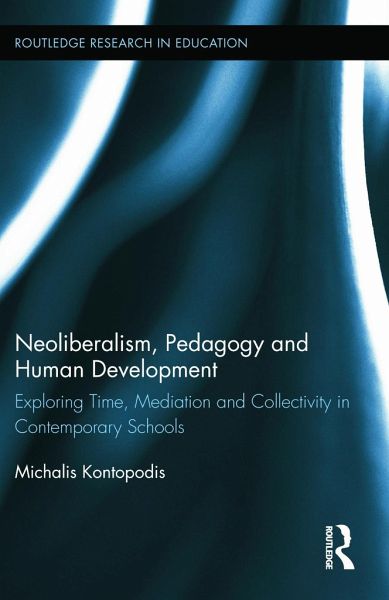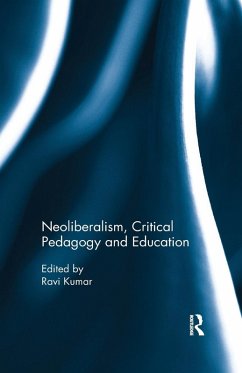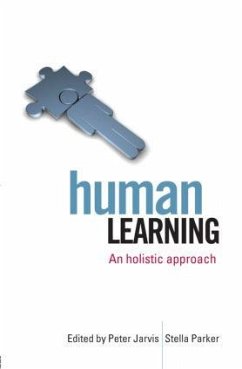
Neoliberalism, Pedagogy and Human Development
Exploring Time, Mediation and Collectivity in Contemporary Schools
Versandkostenfrei!
Versandfertig in 1-2 Wochen
60,99 €
inkl. MwSt.
Weitere Ausgaben:

PAYBACK Punkte
30 °P sammeln!
In most Western developed countries, adult life is increasingly organized on the basis of short-term work contracts and reduced social security funds. In this context it seems that producing efficient job-seekers and employees becomes the main aim of educational programs for the next generation. Through case studies of young people from urban and countryside marginalized populations in Germany, USA and Brazil, this book investigates emerging educational practices and takes a critical stance towards what can be seen as neoliberal educational politics. It investigates how mediating devices such ...
In most Western developed countries, adult life is increasingly organized on the basis of short-term work contracts and reduced social security funds. In this context it seems that producing efficient job-seekers and employees becomes the main aim of educational programs for the next generation. Through case studies of young people from urban and countryside marginalized populations in Germany, USA and Brazil, this book investigates emerging educational practices and takes a critical stance towards what can be seen as neoliberal educational politics. It investigates how mediating devices such as CVs, school reports, school files, photos and narratives shape the ways in which those marginalized students reflect about their past as well as imagine their future. By building on process philosophy and time theory, post-structuralism, as well as on Vygotsky's psychological theory, the analysis differentiates between two discrete modes of human development: development of concrete skills (potential development) and development of new societal relations (virtual development, which is at the same time individual and collective). The book outlines an innovative relational account of learning and human development which can prove of particular importance for the education of marginalized students in today's globalized world.














